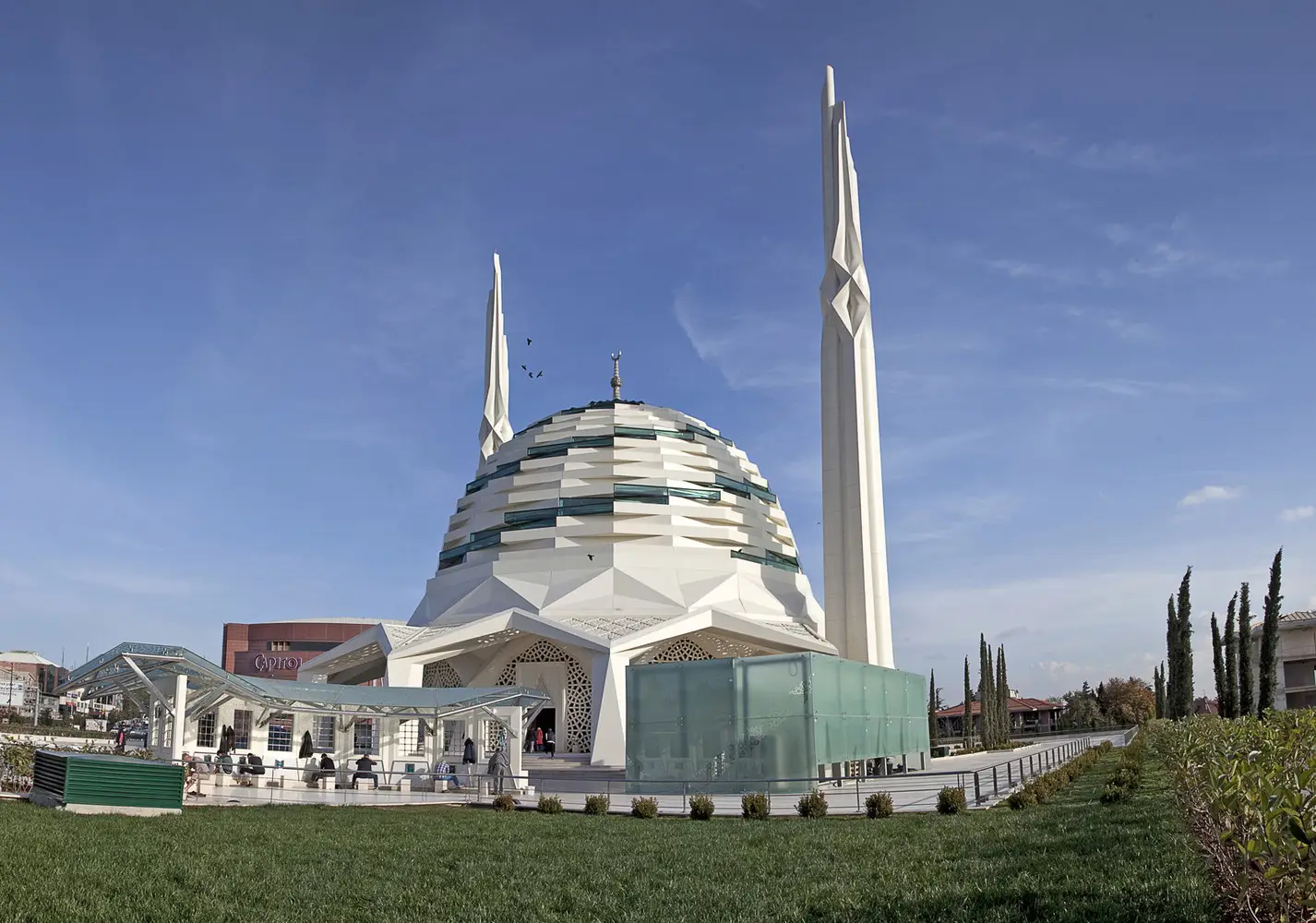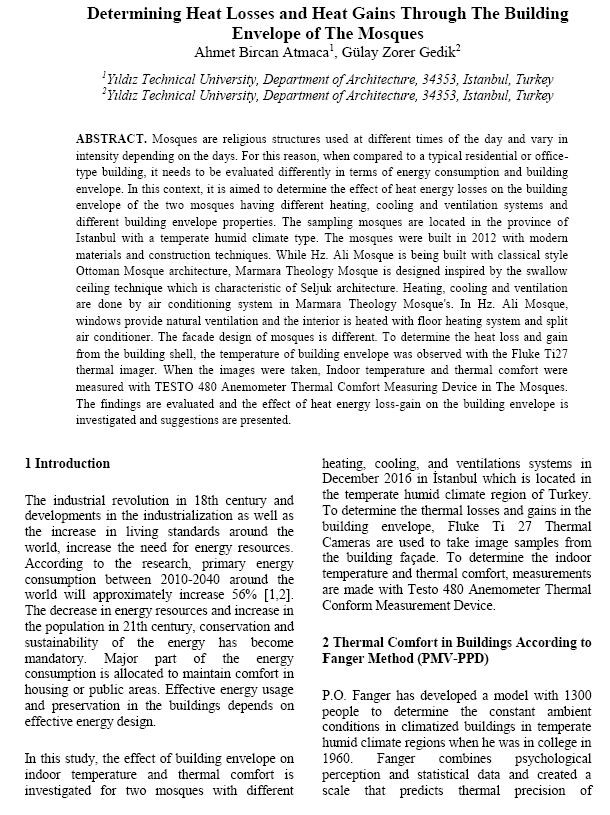

Mosques are religious structures used at different times of the day and vary in intensity depending on the days. For this reason, when compared to a typical residential or office-type building, it needs to be evaluated differently in terms of energy consumption and building envelope. In this context, it is aimed to determine the effect of heat energy losses on the building envelope of the two mosques having different heating, cooling and ventilation systems and different building envelope properties. The sampling mosques are located in the province of Istanbul with a temperate humid climate type. The mosques were built in 2012 with modern materials and construction techniques. While Hz. Ali Mosque is being built with classical style Ottoman Mosque architecture, Marmara Theology Mosque is designed inspired by the swallow ceiling technique which is characteristic of Seljuk architecture. Heating, cooling and ventilation are done by air conditioning system in Marmara Theology Mosque’s. In Hz. Ali Mosque, windows provide natural ventilation and the interior is heated with floor heating system and split air conditioner. The facade design of mosques is different. To determine the heat loss and gain from the building shell, the temperature of building envelope was observed with the Fluke Ti27 thermal imager. When the images were taken, Indoor temperature and thermal comfort were measured with TESTO 480 Anemometer Thermal Comfort Measuring Device in The Mosques. The findings are evaluated and the effect of heat energy loss-gain on the building envelope is investigated and suggestions are presented.
Atmaca, Ahmet Bircan, and G. Zorer Gedik. “Determining Heat Losses and Heat Gains through the Building Envelope of the Mosques.” In Proceedings of the International Research Conference on Sustainable Energy, Engineering, Materials and Environment, pp. 248-255. 2017.
I agree to the terms outlined below:
You agree to upload and assign Mosqpedia Database the rights to use the content worldwide and in perpetuity across all current and future media platforms. Mosqpedia Database may edit, copy, adapt and translate your contribution.
The content will be distributed under the Creative Commons Attribution-Deed – Attribution-NonCommercial-NoDerivatives 4.0 International – Creative Commons
All data will be stored in line with data protection regulations.